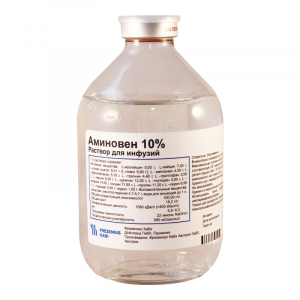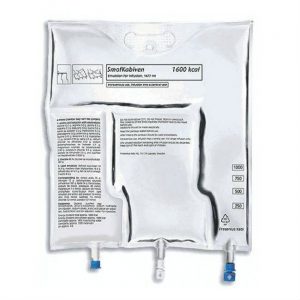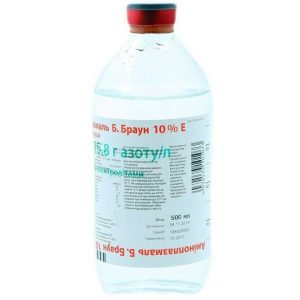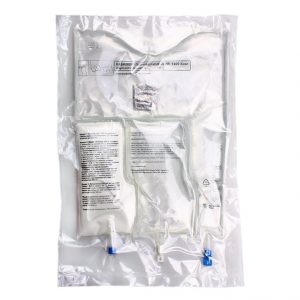Description
Latin name
Dipeptiven
Packing
10 bottles of 100 ml.
Indications
Dipeptiven is used in adults and children with glutamine deficiency, with increased consumption in the framework of complete or mixed parenteral nutrition, including hypermetabolic or hypercatabolic metabolic types (arising from multiple injuries, burns, severe surgical procedures, sepsis, severe inflammatory processes, immunodeficiency, malignant neoplasms).
Contraindications
intolerance to one of the components of the drug
severe renal failure (Cl creatinine <25 ml / min) severe hepatic failure severe metabolic acidosis. Use during pregnancy and lactation Data on the use of the drug in pregnant women, nursing mothers are absent. The drug should be prescribed to pregnant women only if the benefit to the mother exceeds the potential harm to the fetus. When using the drug in nursing mothers, breast-feeding should be discontinued. Composition Active ingredient: N (2) -L-alanyl-L-glutamine 200 g Excipient: water for injection – up to 1 l Dosage and administration Intravenously, drip. Dipeptiven is a concentrated solution and is not intended for isolated administration. Before infusion, it must be mixed with a compatible amino acid solution (carrier solution) or an amino acid-containing infusion preparation, or administered in parallel with these solutions or preparations. One volumetric part of Dipeptiven should be mixed or administered simultaneously with approximately 5 volumetric parts of the carrier solution (e.g. 100 ml of Dipeptiven solution is administered with 500 ml of amino acid solution). The choice of a central or peripheral vein for drug administration depends on the final osmolarity when co-administered with other solutions. Mixtures of solutions with a final osmolarity of more than 800 mosmol / L should be injected into the central veins. The dose of the drug depends on the severity of the catabolic state and the need for amino acids. The maximum daily dose of amino acids is 2 g / kg body weight. When calculating the amount of introduced amino acids, it is necessary to take into account the addition of alanine and glutamine with the introduction of Dipeptiven. The proportion of alanine and glutamine administered with Dipeptiven should not exceed 20% of the total number of amino acids administered intravenously and enterally. The daily dose is 1.5 – 2 ml Dipeptiven per 1 kg of body weight, which is equivalent to the administration of 0.3 – 0.4 g / kg. This dose corresponds to 100-140 ml of the drug per day for a patient weighing 70 kg. The maximum daily dose is 2 ml / kg. The infusion rate should not exceed 0.1 g of amino acids / kg / hour, and is determined by the infusion rate of the carrier solution. Duration of use should not exceed 3 weeks. Side effects If the infusion rate is exceeded, chills, nausea, vomiting Rarely: allergic reaction. If adverse reactions occur, the drug should be discontinued immediately. Drug Interaction When mixed with a carrier solution (0.9% sodium chloride, 5% or 10% dextrose solution, amino acid solution), the aseptic rules must be strictly adhered to, making sure that the solutions are fully compatible and ensure complete mixing. Dipeptiven can be given in / in together with solutions of amino acids for parenteral nutrition or in multi-chamber packages for parenteral nutrition. Overdose Symptoms: Chills, nausea, vomiting may occur when the infusion rate is exceeded. Treatment: if side effects occur, the drug should be discontinued immediately. Storage conditions Store in a dark place at a temperature not exceeding 25 ° C. Do not freeze. Expiration 2 Year Deystvuyuschee substance Amino acids for parenteral nutrition pharmacy terms for dosage form dosage form infusion solution




